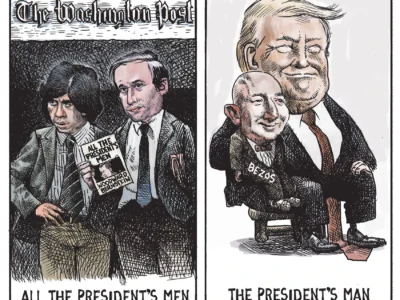Making Climate Policy While Congress Sleeps
An effective climate policy needs to take steps to combat carbon leakage — the tendency of emissions to shift to other jurisdictions in response to regulation. Effective policy also needs to coordinate and link with other jurisdictions. State efforts to accomplish these goals are subject to a variety of constitutional attacks. However, as I explain in a new paper, there are excellent arguments for upholding state climate policies despite challenges under the dormant commerce clause, the compact clause, and the doctrine of foreign affairs preemption. Similarly, the executive branch has leeway to combat leakage and cooperate with other nations by implementing current laws and using executive agreements.
Congress remains a critically important player. But valuable work can be done in the meantime. As discussed in more detail here, such executive branch and states can achieve real emissions reductions and help build the groundwork for a global climate regime. These efforts should not be thwarted by constitutional challenges.







Reader Comments